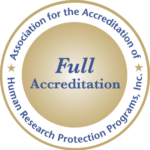USC promotes and engages in agreements by which an IRB relies on the review conducted by another entity. These agreements vary in scope, terms, and terminology. These agreements are designed to reduce duplication and increases efficiency by designating a single IRB review when more than one site is involved in a research project. Among the commonly used reliance agreements are:
- IRB Authorization Agreement (IAA)
- Memoranda of Understanding (MOU)
- IRB Authorization Agreements (IRBAA)
- Master Reliance Agreement (MRA)
- Collaborative Review Agreement (CRA)
SMART IRB will be used as the primary reliance agreement when USC IRB is serving as the IRB if record. If the relying institution is not associated with SMART IRB, the USC IRB Authorization Agreement form will be completed.
Agreements to which USC is a party
- Advarra External IRB Authorization & Reliance Agreement (LAC+USC)
- Advarra External IRB Authorization & Reliance Agreement (HSC)
- Advarra External IRB Authorization & Reliance Agreement (UPC)
- Hoag-USC Master Collaborative Research Study Agreement
- National Cancer Institute’s Central IRB (IRBAA)
- NIH StrokeNet/University of Cincinnati CIRB Authorization Agreement
- RAND American Life Panel (IRBAA)
- Schulman IRBAA Global Alzheimer’s Platform (GAP)
- Schulman IRBAA Cystic Fibrosis Therapeutics Development Network (TDN)
- USC and DHS Ceded IRB Review (MOU)
- USC-CHLA Ceded Review (MOU)
- USC-Hebrew Union College (MOU)
- USC and Rancho Los Amigos (CRA)
- WCG (WIRB-Copernicus Group) Master Agreement
SMART IRB Master Common Reciprocal Institutional Review Board Authorization Agreement

